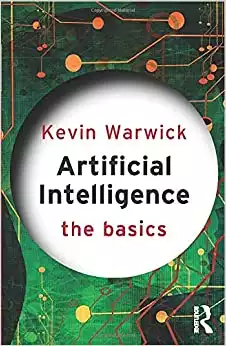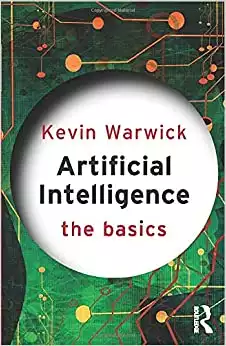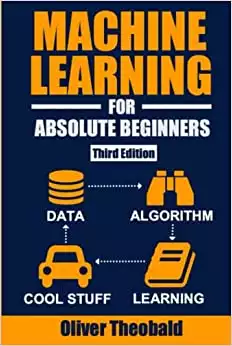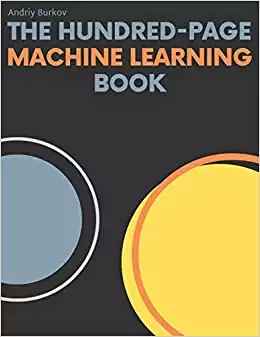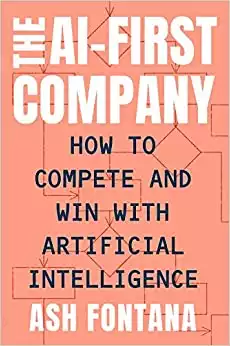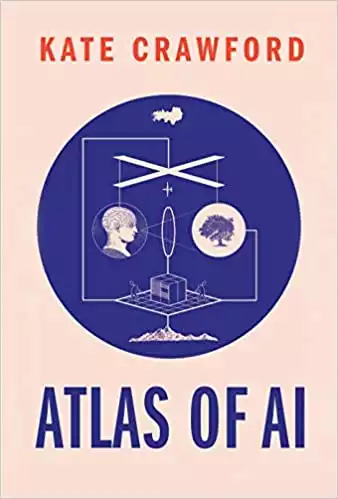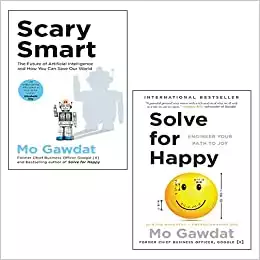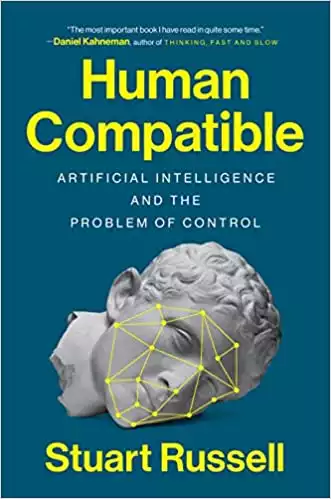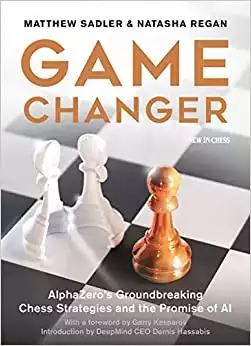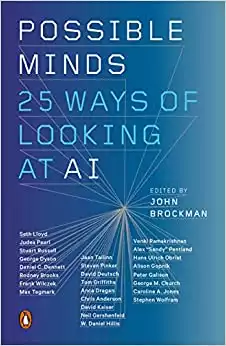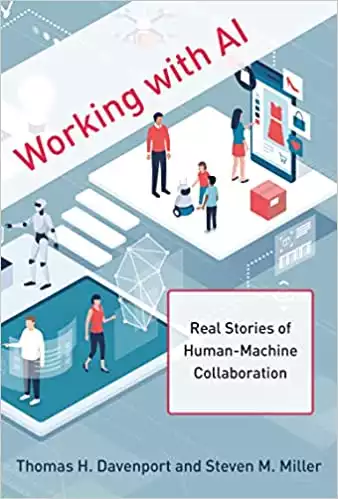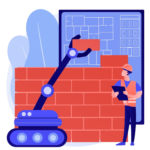Introduction: Top 10 AI books for beginners.
Want to know more about AI? Here are the top 10 AI books for beginners and why you should definitely read them. In the last decade, Artificial Intelligence (AI) has become a force to be reckoned with. It is safe to say that almost every industry across the globe has incorporated AI for a variety of different applications and use cases. The applications of AI technology are wide and varied, and include processes such as process automation, predictive analysis, fraud detection, and even improving customer experience. Start by reading our list of the top Artificial Intelligence books to get a better understanding of AI.
Also Read: Self taught AI will be the end of us
The future of technological and economic development is predicted to be AI. The career opportunities for AI engineers and programmers are likely to dramatically increase in the coming years. These ten books on Artificial Intelligence will be quite helpful if you are someone who is eager to learn and begin a career in this field of AI, IoT and Robotics.
What is Artificial Intelligence?
As the name suggests, Artificial Intelligence (AI) is a broad branch of computer science concerned with building intelligent machines capable of performing tasks that are typically performed by human beings.
What are examples of Artificial Intelligence?
- Siri, Alexa and other smart assistants
- Self-driving cars
- Robo-advisors
- Conversational bots
- Email spam filters
- Netflix’s recommendations
What is IoT?
Using the Internet of Things (IoT), devices that were once considered “dumb” will now become “smart”, being able to transmit data over the internet. This will allow these devices to communicate with people and other devices with IoT capabilities.
What are examples of IoT?
- Smart cities
- Home automations
- Industrial applications
Also Read: How can you use artificial intelligence as a business strategy for your organization?
What is Robotics?
In robotics, programmable machines are built that can mimic humans’ actions or assist humans in their tasks. The original purpose of robots was to perform monotonous tasks (like building cars on an assembly line), but they now perform tasks such as fighting fires, cleaning homes, and assisting with incredibly tricky surgeries far beyond their initial use. There are different levels of autonomy for robots, ranging from human-controlled bots that complete tasks that a human is fully in control over to fully autonomous bots that operate independently.
What are examples of Robotics?
- Robotic Surgery
- Robotic Kitchens
- Manufacturing
Also Watch: 6 hours of robots!
Here are top 10 AI books for beginners that we recommend and why –
- Artificial intelligence – The Basics
- Machine Learning for absolute beginners
- The hundred page machine learning book
- The AI first company
- Atlas of AI
- Scary Smart; Solve for Happy.
- Human Compatible
- Game Changer
- Possible Minds: Twenty-Five Ways of Looking at AI.
- Working with AI.
Book 1 – Artificial Intelligence – The Basics
Artificial Intelligence: The Basics is a concise and cutting-edge introduction to the fast moving world of AI. The author Kevin Warwick, a pioneer in the field, examines issues of what it means to be man or machine and looks at advances in robotics which have blurred the boundaries. Topics covered include:
- How intelligence can be defined
- Whether machines can ‘think’
- Sensory input in machine systems
- The nature of consciousness
- The controversial culturing of human neurons.
Exploring issues at the heart of the subject, this book is suitable for anyone interested in AI, and provides an illuminating and accessible introduction to this fascinating subject.
Book 2 – Machine Learning for absolute beginners
This book provides a high-level introduction to machine learning, free downloadable code exercises, and video demonstrations. Machine Learning for Absolute Beginners Third Edition has been written and designed for absolute beginners.
This means plain-English explanations and no coding experience required. Where core algorithms are introduced, clear explanations and visual examples are added to make it easy to follow along at home.
Book 3 – The Hundred-Page Machine Learning Book
Many industry experts consider Andriy Burkov’s ” The Hundred-Page Machine Learning Book ” to be the best book on machine learning. For newcomers, it provides an introduction to the basic principles of machine learning. This book provides practical advice for experienced professionals based on the author’s rich experience in the field of AI.
Also Read: AI and Power Grids.
This book covers all major approaches to machine learning. From classical linear and logistic regression to modern support vector machines, boosting, deep learning, and random forests. Beginners who want to learn about the mathematics behind machine learning algorithms will enjoy reading this book.
Book 4 – The AI first company
In The AI-First Company, international-renowned startup investor Ash Fontana offers a step-by-step guide to applying AI to business problems. It is a playbook designed for real companies, with real budgets, that need strategies and tactics to implement AI effectively. You can learn these skills at Fontana, whether you are a Fortune 500 company or a new online retailer:
- Identify the most valuable data;
- Build the teams that build AI;
- Integrate AI with existing processes and keep it in check;
- Measure and communicate its effectiveness;
- Reinvest the profits from automation to compound competitive advantage.
In the last fifty years, the goal has been getting AI to work in a lab. In the next fifty years, the goal will be getting AI to work in the real world for individuals, businesses, and society. The solution doesn’t lie in building the right software; it lies in building the right artificial intelligence. AI-First Company is your guide to winning with AI.
Book 5 – Atlas of AI
How does artificial intelligence affect politics and the environment when it permeates daily life? How do we understand ourselves and our societies as a result of AI? In her book, award-winning scholar Kate Crawford explains how AI is a technology of extraction: from the minerals dredged from the earth to the labor of low-wage workers to the data collected from every action and expression. A new planetary network is fueling a shift toward undemocratic governance and increased inequality, reveals this book.
Also Read: Inside Arrival’s Futuristic Factory
Instead of focusing purely on code and algorithms, Crawford offers us a material and political analysis of what it takes to make artificial intelligence, and how it centralizes power. The future of the world is at stake as technology companies use artificial intelligence to reshape it.
Book 6 – Scary Smart; Solve for Happy
Scary Smart:
Humanity is being put at risk to an unprecedented degree due to technology. Neither engineers writing code nor policymakers claiming to be able to regulate it should read this book. Here is the book you need. It is only you who can fix it, believe it or not. — Mo Gawdat Artificial intelligence is more intelligent than humans. It can process information quickly and remain focused on specific tasks without being distracted. As AI sees into the future, it can predict outcomes and even use sensors to see around corners, both physically and virtually. Then why does it frequently get it wrong?
Also Read: Artificial Intelligence the self-designing machine
Solve for Happy:
In this “powerful personal story woven with a rich analysis of what we all seek” (Sergey Brin, cofounder of Google), Mo Gawdat, Chief Business Officer at Google’s [X], applies his superior logic and problem solving skills to understand how the brain processes joy and sadness—and then he solves for happy. In 2001 Mo Gawdat realized that despite his incredible success, he was desperately unhappy. A lifelong learner, he attacked the problem as an engineer would: examining all the provable facts and scrupulously applying logic.
Book 7 – Human Compatible.
A tidal wave of superhuman artificial intelligence is feared to threaten not only jobs and human relationships, but civilization itself. The conflict between human and machine is seen as inevitable, and the outcome all too predictable.
Distinguished AI researcher Stuart Russell argues that this scenario can be avoided, but only if we rethink AI from the ground up. His first step is to examine how humans and machines view intelligence. He discusses the near-term benefits we can expect, such as intelligent personal assistants and fast-tracked scientific research, as well as the breakthroughs that will be needed before we can achieve superhuman AI. Furthermore, he describes the ways humans are already misusing AI, from lethal autonomous weapons to viral sabotage.
Also Read: Fully automated warehouse
We will have created entities that are far more powerful than ourselves, if the predicted breakthroughs occur and superhuman AI emerges. What can we do to ensure that they will never be able to control us? Russell says we can rebuild artificial intelligence on a new foundation in which machines are designed to be inherently uncertain about what humans want. The machines would be altruistic, humble, and committed to pursuing our objectives, not their own. With this new foundation, we would be able to create machines that are both differential and beneficial.
Book 8 – Game Changer.
Despite the world’s shock, AlphaZero was able to become the best chess player after only a few hours of self-learning. DeepMind’s artificial intelligence system was fed only the rules of the Royal Game when it defeated the world’s strongest chess engine. It created a worldwide sensation when ten games were published in December 2017: how was it possible to play so brilliantly and risky and not lose a single game?
Matthew Sadler and Natasha Regan investigated more than two thousand previously unpublished games by AlphaZero for Game Changer. In addition, they were given unparalleled access to its team of developers and given a rare peek ‘under the hood’ to better appreciate the depth and breadth of AlphaZero’s search.
Also Read: Artificial Intelligence and Air Travel
The authors reveal AlphaZero’s thought process and tell the story of its motivation and techniques. Additionally, Game Changer provides a collection of lucidly explained chess games of astonishing quality. Professionals and club players will benefit from AlphaZero’s discoveries in every area that matters: opening preparation, piece mobility, initiative, attacking techniques, long-term sacrifices, and more.
The story of AlphaZero has an impact on a broader audience. The book offers intriguing insights into the possibilities of artificial intelligence. Not just in solving games, but also in finding solutions for a variety of societal challenges. Garry Kasparov provides a foreword and DeepMind CEO Demis Hassabis provides an introduction.
Book 9 – Possible Minds: Twenty-Five Ways of Looking at AI.
Brockman’s deep engagement with many of the leading scientists who have worked on artificial intelligence, from Alison Gopnik and David Deutsch to Frank Wilczek and Stephen Wolfram, makes Possible Minds an ideal introduction to the landscape of crucial issues AI raises. Some of these figures, including computer scientist Stuart Russell, Skype founder Jaan Tallinn, and physicist Max Tegmark, are deeply concerned with the threat of AI, including the existential one, while others, such as robotics entrepreneur Rodney Brooks, philosopher Daniel Dennett, and bestselling author Steven Pinker, have very different views. Possible Minds lays out the intellectual landscape of one of our time’s most important issues in a serious, searching and authoritative manner.
Book 10 – Working with AI.
Despite both the hype and the doom-and-gloom surrounding automation and the deployment of artificial intelligence-enabled — or “smart” — systems at work, this book cuts through the hype and the doom-and-gloom. In spite of widespread predictions, prescriptions, and denunciations, management and technology experts Thomas Davenport and Steven Miller prove AI is not primarily a job destroyer.
As a result, AI changes how we work — by replacing some tasks but not entire jobs, freeing people to do other, more challenging and important tasks. Davenport and Miller also demonstrate that AI in the workplace is not just futuristic speculation through detailed and real-world case studies in settings ranging from finance to the factory floor. Businesses and workers are already experiencing it.
Also Read: AI enabled smart kitchens
A digital system for life insurance underwriting analyzes applications and third-party data in real time, allowing human underwriters to focus on more complex cases; an intelligent telemedicine platform with a chat interface; a machine learning-based system that identifies impending train maintenance issues through analysis of diesel fuel samples; and Flippy, a robotic assistant for the cooking of fast food. Davenport and Miller interview incumbents, managers, and technology vendors for each system, describing the work context in detail. Short “insight” chapters highlight common themes and discuss the implications of human collaboration with smart systems.



